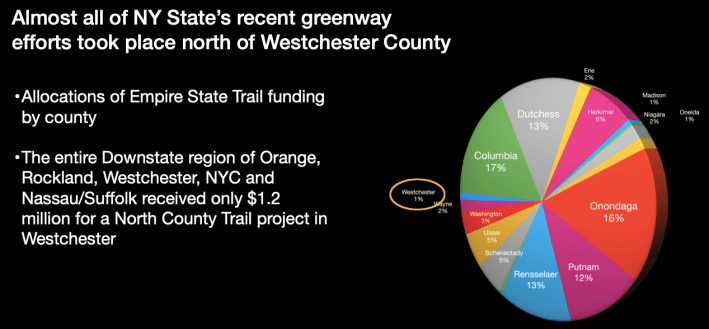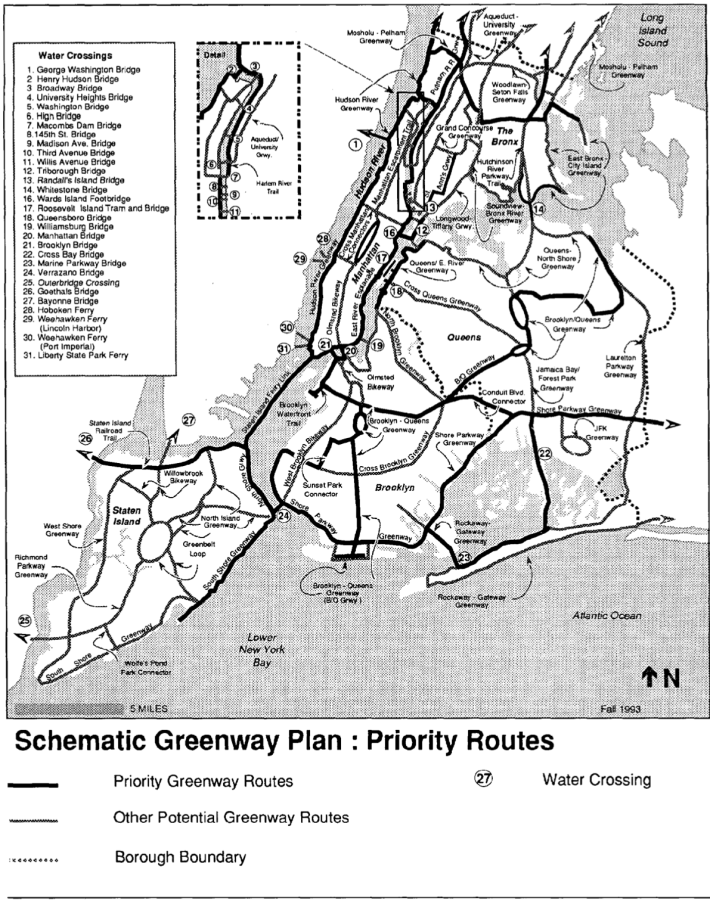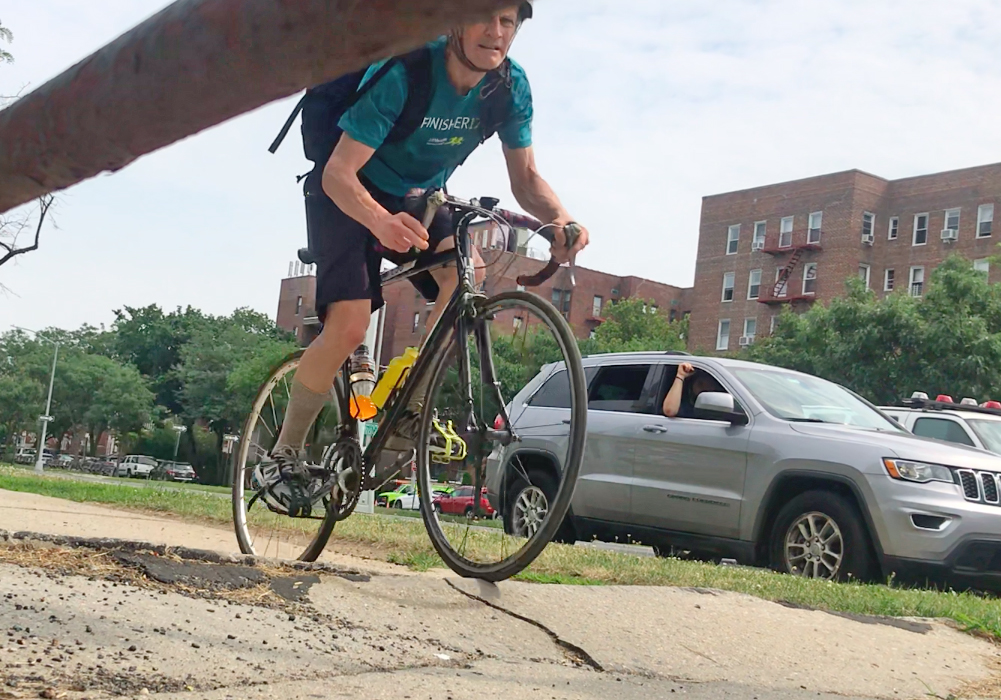We want our greenways, too!
A coalition of downstate elected officials is demanding that the speaker of the Assembly and the Senate majority leader create a $200-million fund for the construction of greenways in the city metropolitan area, a figure that matches the amount that former Gov. Cuomo set aside to build the Empire State Trail — whose budget included a little more than $1 million for a single project in Westchester County.
"We are proud to see the initiatives put forth in the Empire State Trail program, but want to recognize hat the majority of its designated $200 million was distributed to rural areas" and not in New York City or Long Island, reads the letter from 39 senators and Assembly members. It was spearheaded by Sen. Alessandra Biaggi (D-Bronx) and Assembly Member Emily Gallagher (D-Williamsburg).

The need for greenways was revealed during the pandemic, but their utility will extend well after the disease has stopped ravaging our society, the Feb. 17 letter said.
"Greenways improve safety for the thousands of New Yorkers who rely on cycling in their work or as part of their daily commute, including delivery workers," it added. "They enhance the sustainability of our communities and improve quality of life, especially for neighborhoods underserved by our transportation system."
And it's not as if New York City alone couldn't spend $200 million in heartbeat on greenways. For instance:
- Queens advocates recently called for the city to complete a long-overdue Queens greenway to connect Flushing Meadows Park with Fort Totten — and filling the gaps could cost $105 million.
- Earlier this month, a Manhattan community board asked the city to line up federal funding to build a stretch of the Hudson River Greenway north of the George Washington Bridge — an expensive project because it would have to be built over the water.
- The city is currently spending more than $250 million [PDF] to close a several gaps in the East Side greenway, a project that also involves building over water.
- The Ocean Parkway greenway is in terrible shape — and the city has consistently kicked that can down the pothole- and root-filled road.
Gallagher said she has not received a response from leadership yet (and neither office responded to a request for information from Streetsblog), but added that she was optimistic that the electeds' request would be taken up in the next few months during the normal budget process.
Speaking of greenways, devastated sidewalks are infrastructure! This route (Flatbush south of Ave V) has been in @NYC_DOT’s protected/greenway category for a long time, but…
— Bike New York (@bikenewyork) February 22, 2022
Fixing it is in a Jamaica Bay greenway plan, but as a capital project not yet begun - 2030s?? pic.twitter.com/EVdeysxMrm
Meanwhile, greenway supporters said that $200 million is basically the least Albany could do to boost the city's network of disconnected, dead-ending, decaying dedicated bikeways.
"It sounds like a lot — $200 million — but it's not," said Terri Carta of the Brooklyn Greenway Initiative. "The Brooklyn project alone would cost around $150 million to finish and Queens is talking about $110 million. So this money — of which $180 million is capital funds — is just a jumpstart. We need a comprehensive approach to planning a citywide network, and this is a start."
Carta said that the city price tag for a full greenway buildout is $2 billion. Her proposed 26-mile Brooklyn segment is missing key parts in Sunset Park, Red Hook and Coney Island.

A New Yorker could be forgiven for feeling impatient at the pace of greenway construction and maintenance in this city. In 1993, the Dinkins administration put out an ambitious plan that, nearly 30 years later would still be seen as ambitious due to how little has been accomplished. That's why advocates are pushing for dedicated funding.
"Building a greenway network for all New Yorkers along the lines of the Dinkins Administration master plan is a huge job, from fixing crumbling legacy routes to connecting neglected neighborhoods," said Jon Orcutt of Bike New York. "It will take city, state and federal resources. We can't say enough about Assemblymember Gallagher and Senator Biaggi's leadership on this in Albany."
Gallagher said she's in for the long haul.
"We could always use more money and make the greenway network even better, but this $200 million is the amount of money it would take to make it safe and functional," she said. "Once we get that completed, we can make an argument for more investment because there'll be so much more ridership. As usual, we need to invest in the neighborhoods that are not primarily White Spandex-wearing advocates."
Neither the city Department of Transportation nor the Parks Department responded to a request for comment.






